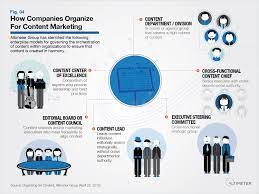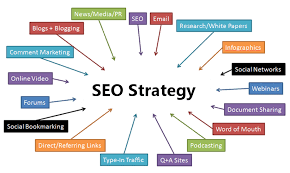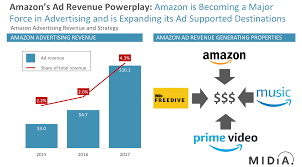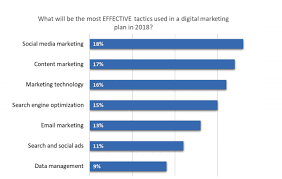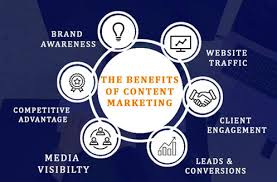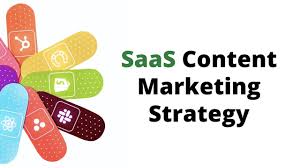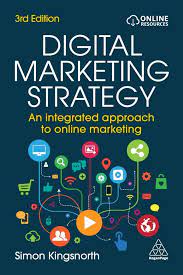The Power of Online Content Marketing
In today’s digital age, online content marketing has become a vital strategy for businesses looking to connect with their target audience, build brand awareness, and drive engagement. By creating and distributing valuable, relevant content online, companies can attract and retain customers while establishing themselves as industry leaders.
Benefits of Online Content Marketing
There are numerous benefits to incorporating online content marketing into your overall digital strategy:
- Increased Visibility: Quality content helps improve your search engine rankings, making it easier for potential customers to find you online.
- Brand Authority: By sharing valuable insights and information, you can position your brand as an authority in your industry, building trust with your audience.
- Engagement: Compelling content encourages interaction and engagement with your audience, fostering a sense of community around your brand.
- Lead Generation: Well-crafted content can attract leads and convert them into customers by addressing their needs and pain points.
- Cost-Effective: Compared to traditional marketing methods, online content marketing offers a cost-effective way to reach a wider audience and drive results.
Tips for Effective Online Content Marketing
To make the most of your online content marketing efforts, consider the following tips:
- Know Your Audience: Understand who your target audience is and create content that resonates with their interests and needs.
- Create Quality Content: Focus on producing high-quality, relevant content that provides value to your audience and sets you apart from competitors.
- Diversify Your Content: Experiment with different types of content such as blog posts, videos, infographics, and podcasts to keep your audience engaged.
- Promote Your Content: Utilise social media platforms, email newsletters, and other channels to promote your content and reach a wider audience.
- Analyse and Optimise: Monitor the performance of your content using analytics tools and make adjustments based on data insights to improve results over time.
In Conclusion
Online content marketing is a powerful tool for businesses looking to establish a strong online presence, engage with their target audience, and drive business growth. By creating valuable and relevant content that resonates with your audience, you can build brand loyalty, attract new customers, and achieve long-term success in the digital landscape.
Mastering Online Content Marketing: 9 Essential Tips for Success
- Understand your target audience and tailor your content to their needs and interests.
- Create high-quality, engaging content that provides value to your audience.
- Utilise various types of content such as articles, videos, infographics, and podcasts to keep things interesting.
- Optimise your content for search engines with relevant keywords and meta tags.
- Promote your content across different online platforms to reach a wider audience.
- Engage with your audience through comments, messages, and social media interactions.
- Analyse the performance of your content using analytics tools to make data-driven decisions.
- Stay updated on industry trends and adjust your content strategy accordingly.
- Build relationships with influencers or other brands for collaborations that can expand your reach.
Understand your target audience and tailor your content to their needs and interests.
To succeed in online content marketing, it is crucial to have a deep understanding of your target audience. By identifying their needs, preferences, and interests, you can tailor your content to resonate with them effectively. This personalised approach not only enhances engagement but also builds trust and loyalty with your audience. By crafting content that speaks directly to the desires and challenges of your target demographic, you can create meaningful connections that drive results and foster long-term relationships.
Create high-quality, engaging content that provides value to your audience.
Creating high-quality, engaging content that offers genuine value to your audience is a cornerstone of successful online content marketing. By focusing on producing content that resonates with your target demographic, addresses their needs, and sparks their interest, you can establish credibility, build trust, and foster long-lasting relationships with your audience. Quality content not only attracts and retains readers but also positions your brand as a valuable resource in your industry, ultimately driving engagement and loyalty among your followers.
Utilise various types of content such as articles, videos, infographics, and podcasts to keep things interesting.
To enhance your online content marketing strategy, it is essential to utilise a diverse range of content formats, including articles, videos, infographics, and podcasts. By incorporating different types of content, you can cater to varied audience preferences and keep your online presence engaging and dynamic. Articles provide in-depth information, videos offer visual appeal and storytelling opportunities, infographics present data in a visually appealing way, and podcasts enable auditory engagement. This variety not only keeps things interesting for your audience but also helps you effectively communicate your brand message across different platforms.
Optimise your content for search engines with relevant keywords and meta tags.
To maximise the visibility and reach of your online content, it is crucial to optimise it for search engines by incorporating relevant keywords and meta tags. By strategically selecting keywords that align with your target audience’s search queries and including them in your content and meta tags, you can improve your website’s ranking in search engine results pages. This practice not only enhances discoverability but also increases the likelihood of attracting organic traffic to your website, ultimately boosting your online presence and engagement with potential customers.
Promote your content across different online platforms to reach a wider audience.
Promoting your content across various online platforms is a crucial strategy in online content marketing to broaden your reach and engage with a larger audience. By utilising social media channels, email newsletters, industry forums, and other relevant platforms, you can increase visibility for your content and attract diverse segments of your target audience. This multi-platform approach not only enhances brand awareness but also drives traffic to your website, ultimately leading to increased conversions and business growth.
Engage with your audience through comments, messages, and social media interactions.
To maximise the effectiveness of your online content marketing strategy, it is crucial to actively engage with your audience through comments, messages, and social media interactions. By responding promptly to feedback, addressing queries, and fostering discussions on various platforms, you not only demonstrate your commitment to customer satisfaction but also build a sense of community around your brand. Engaging with your audience in a meaningful way helps strengthen relationships, increase brand loyalty, and encourage ongoing interaction, ultimately driving positive results for your business in the digital realm.
Analyse the performance of your content using analytics tools to make data-driven decisions.
Analysing the performance of your content using analytics tools is crucial in online content marketing. By gathering and interpreting data metrics such as website traffic, engagement rates, and conversion rates, you can gain valuable insights into what resonates with your audience and what areas need improvement. This data-driven approach enables you to make informed decisions on refining your content strategy, targeting specific audience segments, and optimising your marketing efforts for better results and increased effectiveness in reaching your business goals.
Stay updated on industry trends and adjust your content strategy accordingly.
To maximise the effectiveness of your online content marketing efforts, it is crucial to stay informed about current industry trends and adapt your content strategy accordingly. By keeping abreast of the latest developments in your field, you can ensure that your content remains relevant and engaging to your target audience. Adjusting your strategy in response to industry trends demonstrates a commitment to providing valuable and up-to-date information, helping you maintain a competitive edge and strengthen your brand’s position as a trusted source of expertise in the ever-evolving digital landscape.
Build relationships with influencers or other brands for collaborations that can expand your reach.
Building relationships with influencers or other brands for collaborations is a strategic tip in online content marketing that can significantly expand your reach and enhance your brand visibility. By partnering with influencers who have a strong following or collaborating with complementary brands, you can tap into new audiences, increase engagement, and establish credibility within your industry. These collaborations not only help you reach a wider demographic but also create opportunities for creative content creation and mutual promotion, ultimately driving growth and fostering meaningful connections with your target market.

